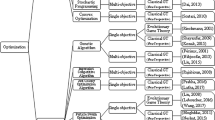Summary
Bernoulli trials with success ratep are considered. Peter, who is a gambler of success ratep, gets 1 unit if the first trial results in success and loses the same unit otherwise. For thekth trial (k≧2), he gets or loses 1 according as success or failure unless his previous gainS k−1 is negative. WhenS k−1 is minus, Peter gets or loses −S k−1 . Then Peter's gainS n inn trials is the sum of “dependent” random variables. Therefore, Peter has always the chancep of recovering his minus gain instantaneously.
The probability function ofS n is given and the expected gain is compared with the ordinary (non-symmetric) random walk situation. It will be concluded that Peter should not play the game with one-chance recovery because whenp is less than 1/2, he must be afraid of suffering a bigger risk than the usual case.
Similar content being viewed by others
References
Feller, W. (1957).An Introduction to Probability Theory and Its Applications, Volume I, John Wiley.
Feller, W. (1966).An Introduction to Probability Theory and Its Applications, Volume II, John Wiley.
Additional information
The Institute of Statistical Mathematics
About this article
Cite this article
Suzuki, G. On a stochastic game with one-chance recovery. Ann Inst Stat Math 32, 53–64 (1980). https://doi.org/10.1007/BF02480311
Received:
Published:
Issue Date:
DOI: https://doi.org/10.1007/BF02480311



